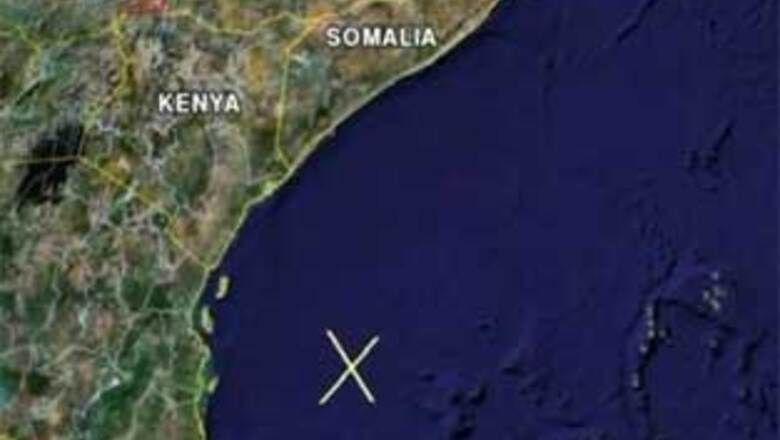
views
Molo: The explosion of an overturned tanker could be felt for miles, and the moments that followed haunted survivors: People ablaze, their clothes burned off, running to the bush in a futile effort to escape the pain and begging for help.
More than 100 people were killed, and another 200 injured in the inferno overwhelmed hospitals Sunday, where victims lined the floors, hooked to drips and moaning in pain. Authorities expected the death toll to rise and were searching the scorched woods for corpses.
Hundreds of impoverished people had flocked to the overturned tanker Saturday to siphon fuel when it exploded, likely sparked by a cigarette.
"Everybody was screaming and most of them were running with fire on their bodies, they were just running into the bush," said Charles Kamau, 22, who was driving through Molo on Saturday night when he saw the road blocked by hundreds of people with gerry cans, plastic bottles and buckets — anything to siphon some free fuel.
The explosion was one of this East African nation's deadliest accidents, and highlighted the desperation of people living in the poorest continent in the world.
"Poverty is pushing our people into doing desperate things just to get through one more day," Prime Minister Raila Odinga said at a hospital in Nakuru, near Molo.
Joseph Rotich, 35, lives in Molo and ran to the scene when he heard that a tanker was spilling fuel. He was haunted by the severely wounded victims, their clothes burned off, begging for help in the forest.
"They were lying there, saying, 'Give me aid, please call someone,'" he said. "I am so sad, so sad. When they heard this lorry had fuel, they came to get the fuel because it was free."
The government sent extra body bags and medical supplies to the area by helicopter, along with more doctors for the overwhelmed hospitals, where some victims were lying on floors. One child, who appeared to be around 10, was sitting dazed in a wheelchair with burns covering his face and body.
The Kenya Red Cross said the death toll was 113 but was expected to rise.
"Most of the families will have a hard time because these bodies are charred beyond recognition," said Patrick Nyongesa, the regional manager for the Kenya Red Cross.
The scene was so gruesome, he said, that Red Cross workers were being offered counseling.
Burnt-out cars and charred clothing littered the road where the shell of the tanker stood, smoldering. Odinga said a cigarette might have caused the explosion, but police said the cause remained under investigation.
Kamau, who works at an orphanage near Molo, was unhurt but a 10-year-old child who was in the car with him suffered burns on his back, and another adult in his car was missing.
"I just grabbed the boy and ran," Kamau said. He was a Red Cross tent in Molo, about 105 miles (170 kilometers) northwest of the capital, Nairobi, to report his colleague missing. Hundreds were gathering there for any news of missing loved ones.
Similar blasts are common in Nigeria, where people tap gas pipelines to pilfer fuel for cooking or resale on the black market. In 2006, a gasoline blast killed 200 people in Nigeria.
The Kenyan government has been criticized for poor safety regulations recently. Nearly 30 people died Wednesday when a massive fire swept through a supermarket in downtown Nairobi.
Vice President Kalonzo Musyoka said the country was enduring a time of tragedy.
"Everybody is in shock, with the fire coming as it does just days after the other blast," he said as he toured the scene in Molo.
















Comments
0 comment